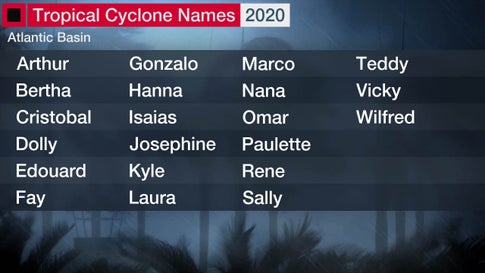2020 Hurricane Season and Insurance Cancellations

The Atlantic coast may see a busier than normal hurricane season this year and if coastal property owners have an issue paying their insurance premiums, leading to cancellations, the economic toll from a major hurricane could become much worse.
As an example, in 2017, Hurricane Harvey flooded 204,000 homes and apartments which caused roughly $16 billion in damage to homes in the city of Houston alone. Since the pandemic started, 19 states have directed insurance companies to suspend insurance policy cancellations for nonpayment.
Unfortunately, hurricane prone states such as Florida, South Carolina and Alabama did not make that protection mandatory and in other states such as Louisiana and Mississippi the mandated grace period has expired.
While the federal stimulus checks and extended unemployment payments have helped many homeowners cover their bills, that help is set to expire by the end of the month, leaving even more homeowners vulnerable as hurricane season approaches.
“I’m not worried right now,” said Mississippi Insurance Commissioner Mike Chaney in a Richmond Times Dispatch article. “But that could change on a dime if corona gets worse and we have a hurricane.”
Chaney did not extend Mississippi’s moratorium on cancelling policies due to non-payment or other issues because he feels that insurers are willing to work with policyholders if they fall behind on their premium. Mississippi residents can also buy wind damage insurance form the state pool which operates as the insurer of last resort in the Magnolia state.
“My concern is if we keep going forward and we don’t have any extension of the CARES Act or any stimulus programs, that people won’t be able to pay their insurance,” Chaney said in the article.
Homeowners Scale Back Coverage in Uncertain Times
According to industry statistics, 91 percent of homeowners carry homeowners insurance. However, if they fail to keep their home insured and have a mortgage, their lender can recall the mortgage and foreclose on the house. “Banks are not going to allow you to not have insurance, especially in hurricane prone properties. That would be highly risky.” said Robert Hunter, director of insurance for the Consumer Federation of America in the Richmond Times Dispatch article.
During uncertain economic times people often scale back their insurance protection. According to the Insurance Research Council, during the Great Recession in 2009, 15 percent of policyholders reduced their homeowner or auto insurance coverage or increased their deductible to reduce their premium.
In addition, the majority of standard homeowner policies exclude coverage for flood damage. Unfortunately, the most expensive type of damage done by hurricanes is flooding. Flood insurance is a mandatory coverage only if you live in specific high-risk areas or if you have received federal disaster assistance in the past. Flood insurance premiums average around $700 a year but can be much higher in high risk areas, especially coastal communities.
Even if you own your home outright, flood insurance is still important. Flooding does tremendous damage and if you are not carrying flood insurance you will be on the hook to repair or rebuild your home if it is damaged by flood waters.
As an example, in two Alabama counties hit by Hurricane Katrina, roughly 50% of homeowners without a mortgage dropped coverage for wind damage after the storm according to the Insurance Information Institute. This pattern was similar in Louisiana and Mississippi.
Chaney said the percentage of homeowners in Mississippi without any insurance fluctuates between 25% and 30% depending on the state of the economy.
Tips for Keeping Insurance Affordable
As many of us struggle to cover bills during the pandemic it can be tempting to drop insurance coverages, but this can be a huge mistake. Homeowners and flood insurance are essential protections, especially during hurricane season. Here are a few tips on how to save money on your insurance:
- Shop Around: This is the best way to lower your insurance premium. Insurer rate risk differently and this can result in dramatic differences in premium quotes. Get home insurance quotes from at least five different insurers and make sure you are comparing apples to apples when it comes to coverage levels and deductibles.
- Raise Your Deductible: If you can afford to raise your deductible this will lower your premium. Doubling your deductible should result in a significant discount on your premium. Always make sure you choose a deductible that you can easily afford in the event you have to make a claim on your policy.
- Improve Your Home: Upgrading your home can result in significant savings, especially with flood insurance. Putting your mechanicals (AC units) off the ground, upgrading your roofing materials or installing a sprinkler system will often result in significant savings. Helpful Article: Top 5 Home Improvements That Can Save You Money on Your Home Insurance
